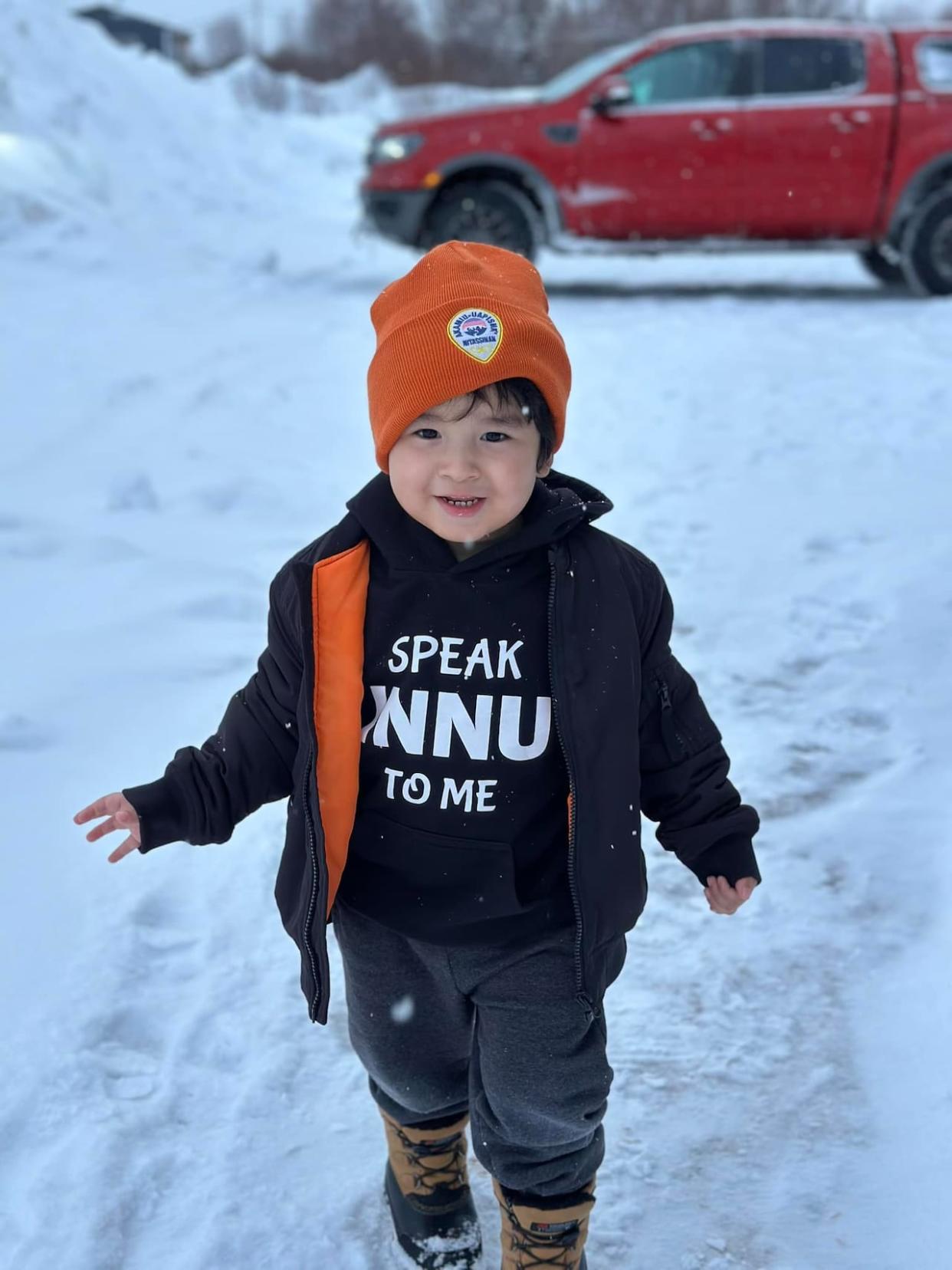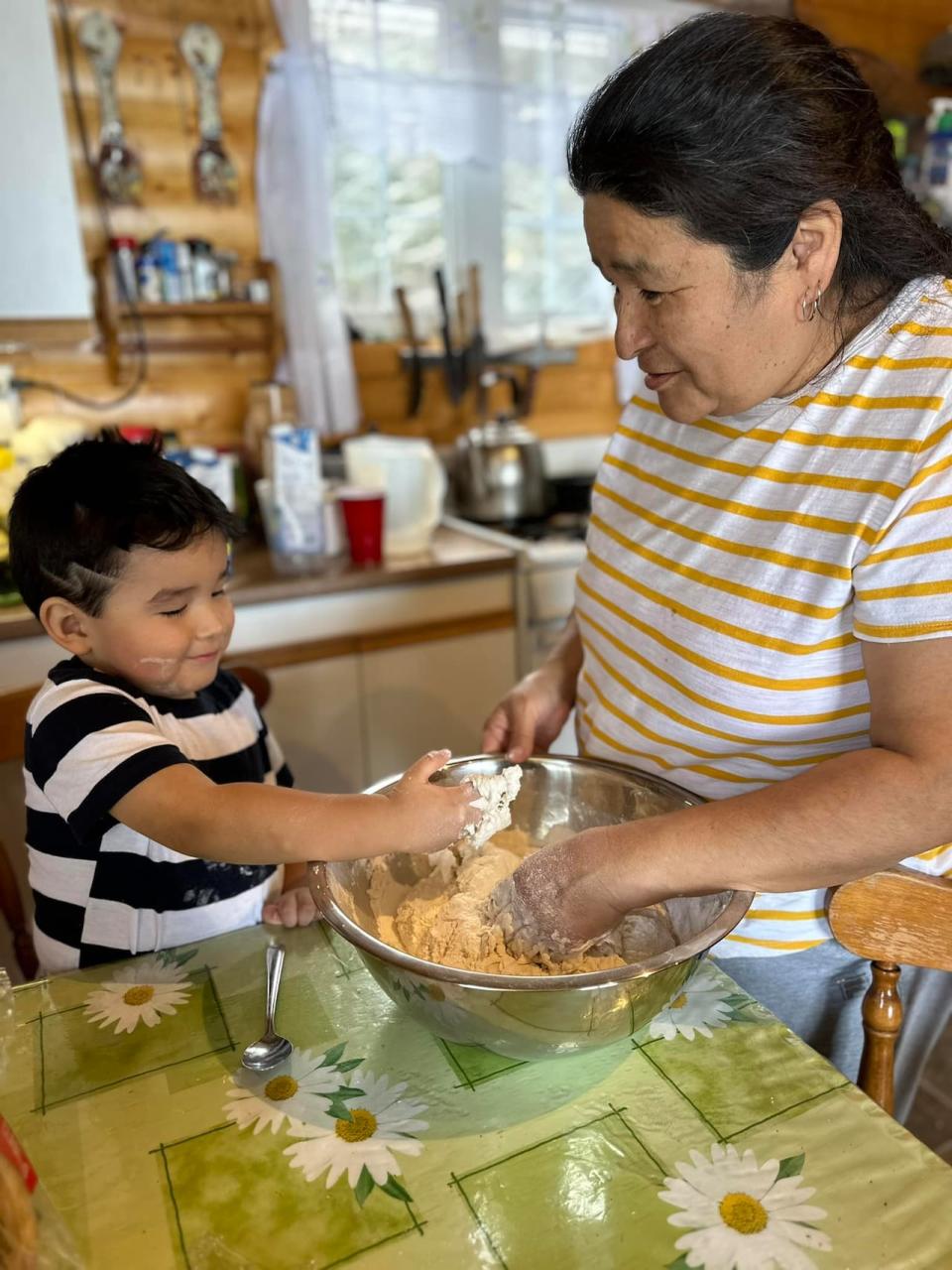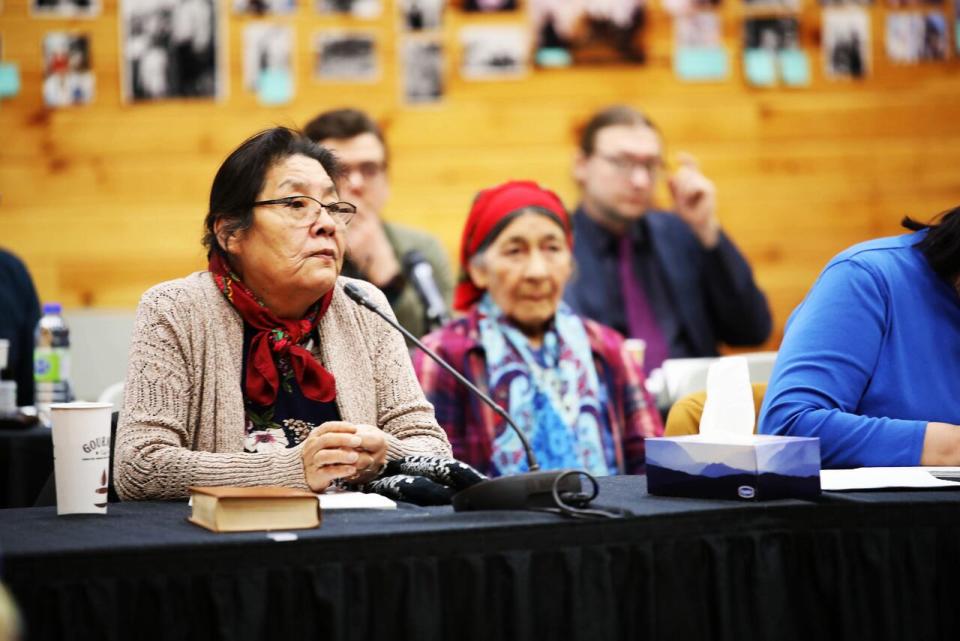A Sheshatshiu woman wants her son to grow up speaking Innu-aimun. Her secret weapon? A sweater

A Sheshatshiu mother hoping to highlight the challenges of raising her son to speak Innu-aimun has hit upon a creative solution.
Megan Rich said it's been a struggle to have people talk to two-year-old Daniel in Innu-aimun so she had a sweater made for him with "Speak Innu to Me" printed on it.
"I have had people come up to me speaking English to my child and I tell them, 'Speak Innu to him. He's Innu,'" Rich told CBC News in a recent interview.
"And I had one person actually try to argue with me, telling me, 'He's going to have to learn English anyway,' he said. I'm like, 'But I'm trying to lay down his roots.'"
Rich grew up speaking Innu-aimun as her first language. At the time, she said, she couldn't imagine Innu-aimun disappearing.
But now, she said, most kids in the area speak English, the local school is in English, surrounding communities are English-speaking, TV shows and movies are in English and all technology her son uses is in English.
"I remember people saying the language is going to die and I'm there thinking to myself, like, 'No, that's never going to happen. And I'm now 33 years old and it is happening. It's happening at a very fast rate, and it's scary."

Rich hopes Daniel will grow up knowing his language and his culture. She said her parents are helping him learn about his culture and language. (Megan Rich/Facebook )
At the formal hearings of the Inquiry Respecting the Treatment, Experiences and Outcomes of Innu children in care, Helen Aster, the Sheshatshiu Innu First Nation's social health director, said the loss of Innu-aimun is a social health issue.

Helen Aster, Sheshatshiu's director of social health, told the inquiry into Innu children in government care in January that language loss is a social health issue. (Heidi Atter/CBC)
Aster's own grandchildren are speaking English, she said, and it has wider effects beyond just not knowing Innu-aimun words.
"It's affecting the culture because most of the kids, the youth, they don't know the language and where they're coming from," Aster said. "They don't know who they are."
If a person doesn't know where they come from, that affects their identity, she said.
"It's also something that we should be moving forward to promote our language and culture, and it's not happening. It's only a few people that are doing it."
Growing up speaking your own language helps you form a strong identity based in your culture and language, Rich said.
"My fear is that he's going to grow up and he's not going to speak Innu and he's not going to know where he comes from," Rich said. "That is my only goal in life, like to have a happy child and for him to speak his own language."
It can be a challenging language to learn, with longer words that can be tough for children to pronounce, but it only takes practice, she said.

Rich says she hopes Daniel will know who he is and take pride in his culture's traditions. (Megan Rich/Facebook)
Hearing Daniel start to be able to speak Innu-aimun is heartwarming, said Rich, who hopes to see the language continue to be used for generations to come.
"I was just filled with joy that he's able to name things," Rich said. "It's priceless. I guess you can't put a price on learning your first language, and a dying language at that."
Download our free CBC News app to sign up for push alerts for CBC Newfoundland and Labrador. Click here to visit our landing page.

 Yahoo News
Yahoo News 
